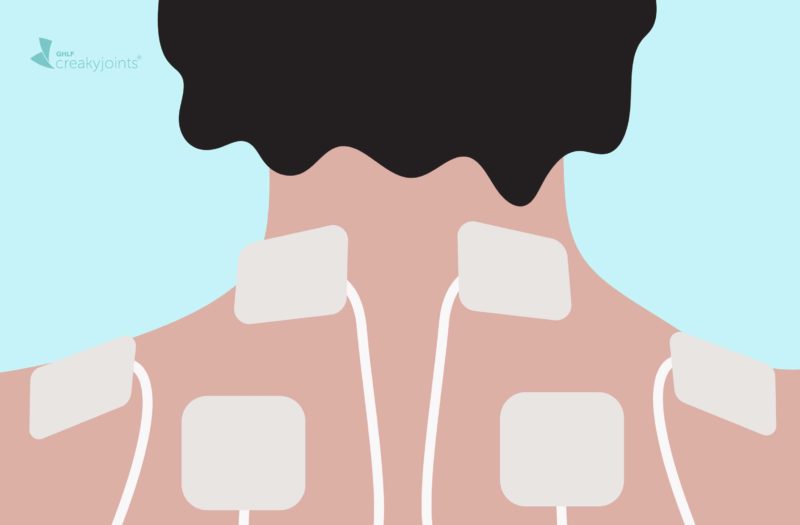Whether you get a prescription from a doctor or buy a relatively inexpensive over-the-counter unit, TENS therapy might be worth a try: A new study published in the journal Arthritis & Rheumatology adds to the evidence that it helps relieve fibromyalgia pain.
TENS, which stands for transcutaneous electrical nerve stimulator, involves sending mild electrical impulses to specific areas of your body. Using the battery-powered device is as simple as sticking electrodes to your skin (similar to when you get an EKG) turning it on, and then adjusting the intensity level. You might feel a tingling or buzzing sensation, but TENS doesn’t usually hurt. In fact, it’s quite the opposite: The impulses are believed to relax tight muscles and prompt your body to produce more of its own pain-relieving chemicals called endorphins.
TENS is commonly used for a wide variety of conditions, ranging from menstrual cramps to arthritis to sports injuries. It’s also often used by people with fibromyalgia, though there hasn’t been too much research proving that it works. In recent years that’s been starting to change, as a few randomized trials have shown that TENS is beneficial for fibromyalgia.
Now a new study from researchers at the University of Iowa and Vanderbilt University Medical Center adds to the body of positive results. The researchers took about 300 women with fibromyalgia and randomly split them into three groups. One group was given a TENS unit and instructed to use it for two hours a day; the second was given the same instructions but given a TENS unit that was designed to only deliver a current for 45 seconds; and the third was given a sham unit that did not actually send out any impulses.
After four weeks, members of the group that got the real TENS therapy reported the biggest decreases in pain and fatigue. Nearly half (44 percent) said their pain had improved by at least 30 percent, 45 percent had less fatigue, and 29 percent had both less pain and less fatigue, “suggesting that a sub-population of individuals with [fibromyalgia] responds well to TENS,” the authors wrote.
TENS therapy is widely believed to be safe, though people who have pacemakers or other metal implants should not use it. In the recent study, a small group of participants (less than 5 percent) complained of pain while using the device or skin irritation around the electrodes.
Keep Reading
Dailey DL, et al. A Randomized Controlled Trial of TENS for Movement‐Evoked Pain in Women with Fibromyalgia. Arthritis & Rheumatology. November 2019. doi: https://doi.org/10.1002/art.41170.
TENS (transcutaneous electrical nerve stimulation). National Health Service (NHS). https://www.nhs.uk/conditions/transcutaneous-electrical-nerve-stimulation-tens.
Transcutaneous electrical nerve stimulator (TENS). University of Iowa Hospitals & Clinics. https://uihc.org/health-topics/transcutaneous-electrical-nerve-stimulator-tens.
Vance CGT, et al. Using TENS for pain control: the state of the evidence. Pain Management. May 2014. doi: http://dx.doi.org/10.2217/pmt.14.13.






